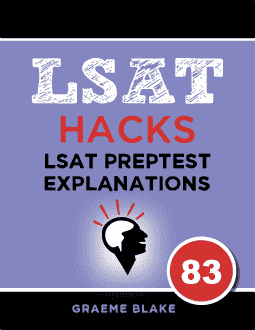QUESTION TEXT: Researchers examined 100 people suffering from herniated…
QUESTION TYPE: Strengthen
CONCLUSION: The genetic defect raises the odds of herniated disks.
REASONING: In 100 people with herniated disks in their backs, 5% had a particular gene. In 100 people without herniated disks, nobody had that gene.
ANALYSIS: This is a moderately compelling argument, but the sample is fairly small. To learn more, we should either get a bigger sample or instead directly study people who have the defective gene and see if their disks are herniated. With small samples and small results it’s always possible it was just randomness. 5% is not a high number.
Note that this is a strengthen question. A lot of the answers weaken the argument. So, it’s possible if you’re reading this explanation you may have misread the question stem? I normally wouldn’t write something like that, but I would say all four wrong answers weaken the argument so at least some readers may have made that mistake here.
___________
- This moderately weakens the argument. It seems herniated disks are really common! So, it’s hard to figure out any pattern by only looking at people with herniated disks.
- This massively weakens the argument. 100 people with the defect, and only 2% of them have herniated disks? It sounds like the original findings were a coincidence.
- CORRECT. This is extremely persuasive. Family members share genes. And there is a 100% rate of gene defect ➞ herniated disk in the family members.
- This weakens the argument. It sounds like the original study was a fluke due to small sample size.
- This weakens the argument. We’re trying to show that the defect raises the odds of herniated disks. But in this case, it seems that those without the defect have very high odds of herniated disks! (67%)
Recap: The question begins with “Researchers examined 100 people suffering from herniated”. It is a Strengthen question. Learn how to master LSAT Strengthen questions on the LSAT Logical Reasoning question types page.


Leave a Reply